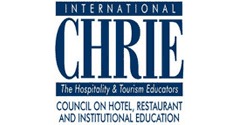
Day 1 - Wednesday, 29 July 2009
Information
The main resource for many tourism destinations is the natural environment. Tourists are increasingly interested in visiting unspoiled locations. Accordingly, managers are pressured to execute ecologically sustainable practices. One approach is selective marketing. The feasibility of this approach remains untested for wine and other types of tourists. This study investigated how respondents viewed wine tourism’s influence on a community. As consumers’ environmental knowledge increases, their attitudes change, influencing perceptions of a wine region’s, environmental policies. Results suggest environmental attitudes differed, by demographics, regarding wine tourisms influence on a community, providing those involved in wine tourism ideas for further marketing efforts.
Start Date
29-7-2009 4:30 PM
End Date
7-29-2009 5:30 PM
wf_yes
A Case for Selective Marketing: Identifying the Ecological Wine Tourist
The main resource for many tourism destinations is the natural environment. Tourists are increasingly interested in visiting unspoiled locations. Accordingly, managers are pressured to execute ecologically sustainable practices. One approach is selective marketing. The feasibility of this approach remains untested for wine and other types of tourists. This study investigated how respondents viewed wine tourism’s influence on a community. As consumers’ environmental knowledge increases, their attitudes change, influencing perceptions of a wine region’s, environmental policies. Results suggest environmental attitudes differed, by demographics, regarding wine tourisms influence on a community, providing those involved in wine tourism ideas for further marketing efforts.